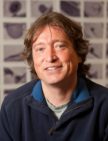Graduate students win NSF research fellowships
will.fergusonThree Washington State University College of Arts and Sciences students have been chosen for National Science Foundation graduate research fellowships. The prestigious awards have trained generations of American scientists and engineers, including Nobel laureates.
The College of Arts and Sciences’ honorees are:
Avery Anne Lane, an anthropology student from Tucson, Ariz., who is working on a master’s in Courtney Meehan’s biocultural anthropology lab.
Shawn Trojahn, a biology master’s student from Virginia Beach, Va., who is looking at the global decline in biodiversity in the vulnerable mangrove forest, a habitat affected by logging and water pollution.
Lindsey Marie Lavaysse, a psychology master’s student from San Francisco, is focusing on occupational health and safety threats to vulnerable populations like pregnant and minority workers.


